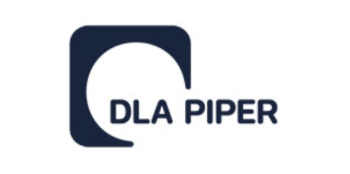Similar to other jurisdictions, Italy has been affected by global phenomena such as technological advances, an ageing population, climate change and evolving legal and regulatory frameworks. So how has the Italian legal system adapted to emerging risks and the new needs of policyholders?
Legal systems often take time to adapt to real-life phenomena and often change only as a result of concrete problems. This article examines a number of recent changes to the Italian insurance market in this context.
The 2017 healthcare risk management and prevention reform was introduced to:
- foster greater legal certainty with regard to medical liability (both public and private);
- expedite the settlement of disputes; and
- provide new rules to promote the role of experts.
Pending the implementation of a decree which will govern the minimum requirements for compulsory insurance policies for healthcare professionals and hospitals, the national observatory of good practices on safety in the healthcare sector was set up on 22 March 2018. The observatory collects and analyses data relating to adverse events and healthcare risks in order to understand the respective causes and prevent them from reoccurring.
These initiatives have been undertaken with an awareness of the fact that a better definition of the relevant legal framework could encourage insurers to return to a market that has been abandoned by the majority of players. IVASS, the Italian insurance regulator, has been collecting data and information from insurers for some time to better understand the potential obstacles to their active participation in the healthcare sector.
While the framework of rules still needs to be completed, there is no doubt that medical liability insurers will have a leading role in this regard.
Long-term care, earthquake and motor liability insurance
Based on an objective need for protection and the reduced role of the state, the legislature has introduced tax incentives aimed at fostering the purchase of 'system' insurance products. Examples in this context are the 100% tax deduction introduced to encourage employers to take out long-term care policies for their employees and the introduction of a 19% tax deduction on earthquake insurance for residential buildings. Whether this type of policy should be compulsory remains the subject of debate at the government level.
Further, the legislature has regularly intervened with regard to compulsory motor liability insurance to mitigate policy costs and litigation. In this regard, the Insurance Code was amended in 2017 to introduce discounts for insureds that install black boxes in their motor vehicles.
The discount applies when at least one of the following conditions is met:
- the insured's motor vehicle undergoes an inspection;
- the vehicle has a black box; or
- an electronic device is installed to prevent the engine from being started if the driver's blood alcohol content exceeds the statutory limit (the so-called 'alcolock').
The discount is applied at a net premium and is equal to a rate calculated by the insurer beforehand.
The legislature has also introduced a special tax regime for the life insurance sector to boost the purchase of relevant products. For instance, the costs incurred for life insurance premiums are 19% deductible. Individual saving plans (ie, particular types of financial product which grant savers an exemption from tax over yields) are also subject to tax deductions, provided that they are maintained for five years and other conditions are met.
Finally, the legislature has introduced complementary pension scheme measures through the individual pension plan. This is aimed at parties who, regardless of their employment situation (eg, employees or freelancers), want to save supplementary income. The tax benefits for these instruments include reduced taxation on contributions paid (ie, 20% instead of 26%).
For further information on this topic please contact David Maria Marino at DLA Piper Italy by telephone (+39 02 80 61 81) or email ([email protected]). The DLA Piper Italy website can be accessed at www.dlapiper.com.
This article was first published by the International Law Office, a premium online legal update service for major companies and law firms worldwide. Register for a free subscription.



